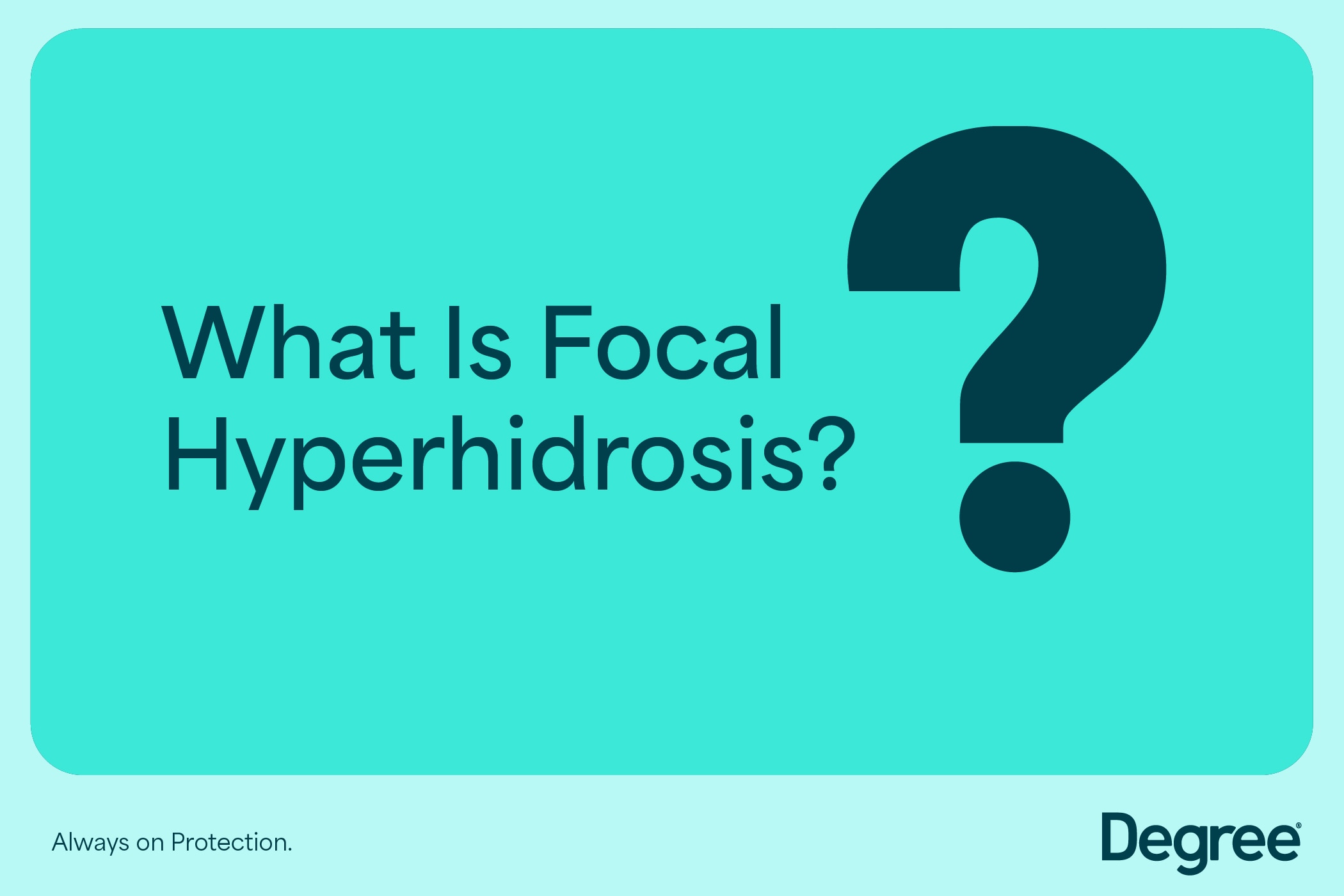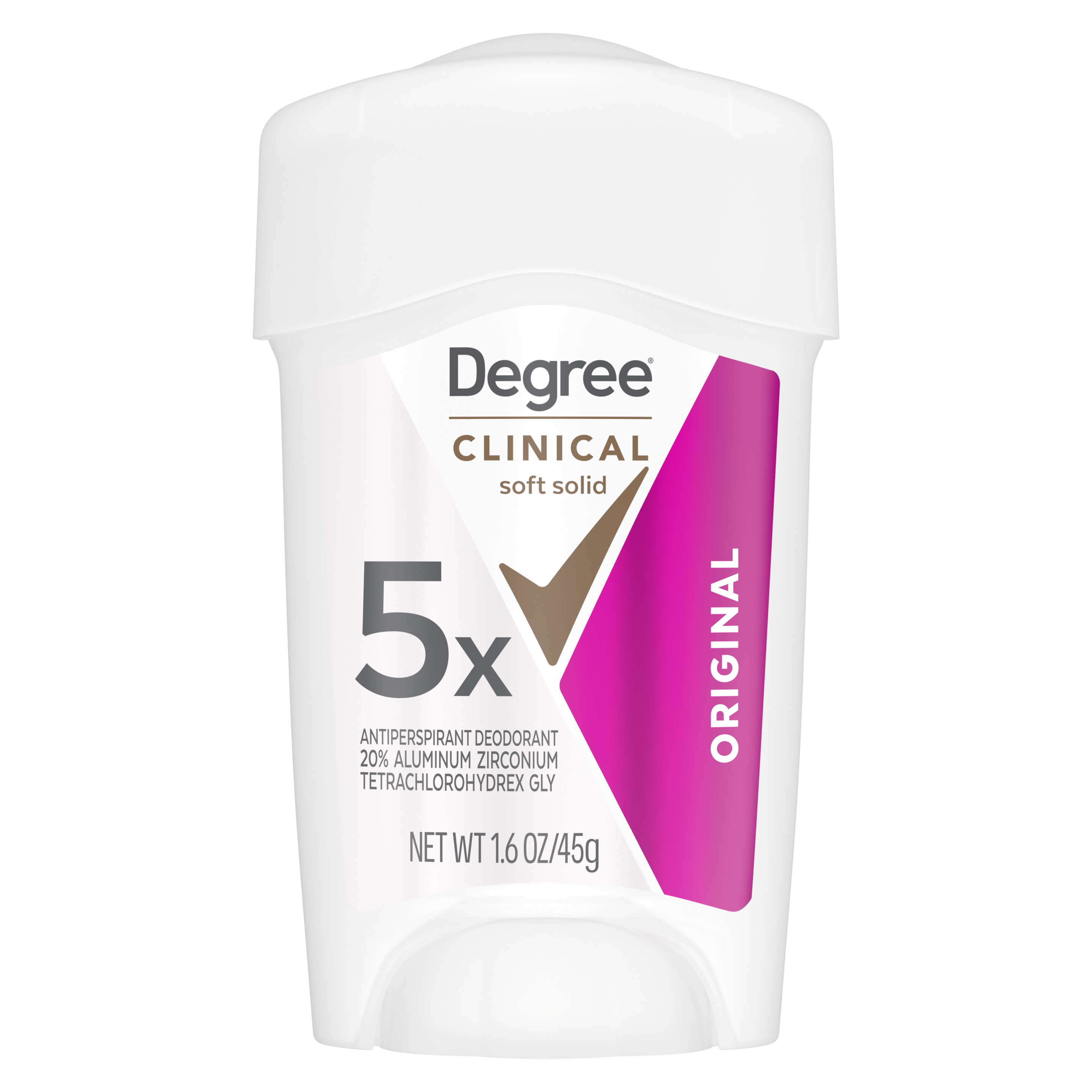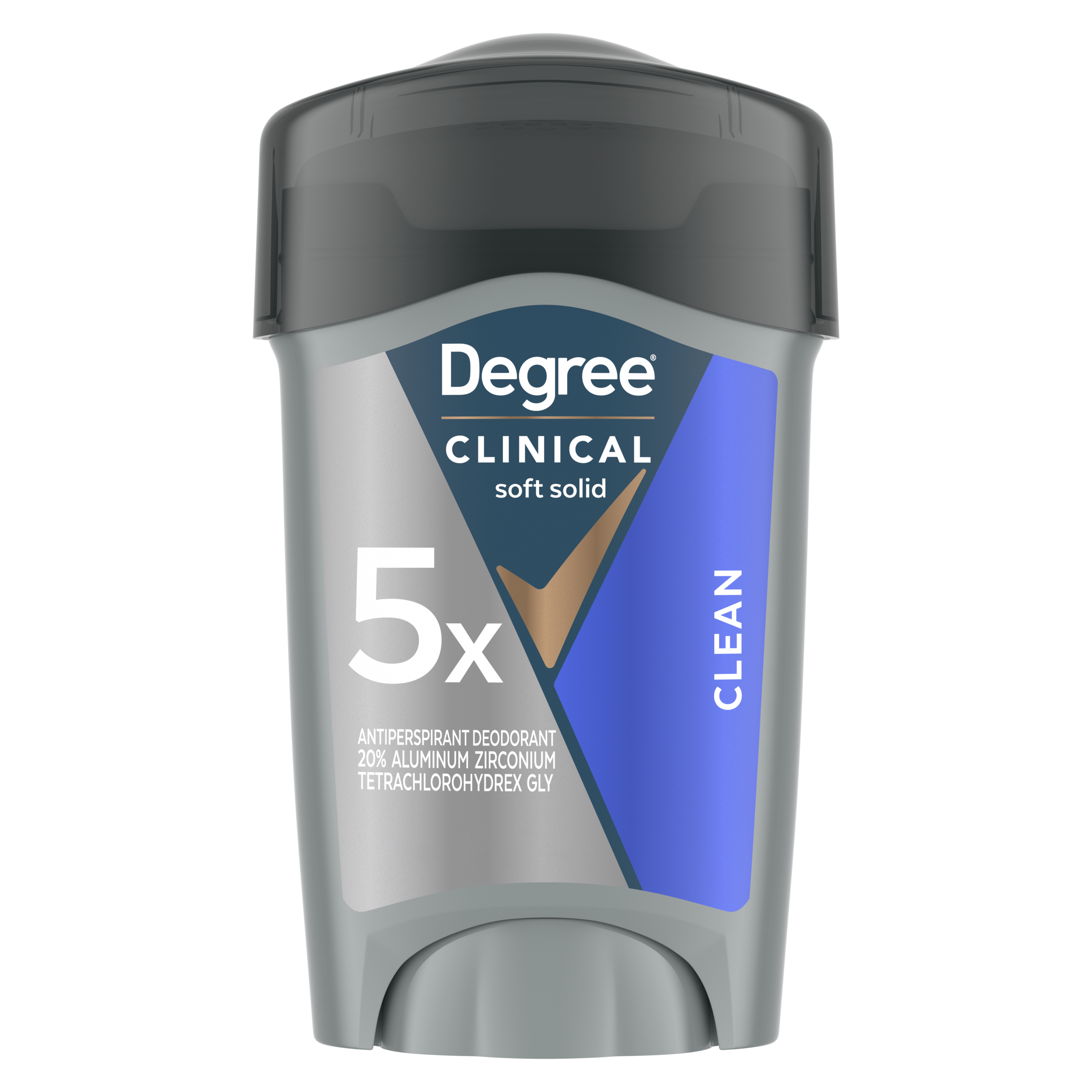IS THERE A DIFFERENCE BETWEEN HYPERHIDROSIS DEODORANT AND ANTIPERSPIRANT?
If you’re managing hyperhidrosis, knowing the difference between deodorant products can help you find the right fit for your routine.
Deodorant
Deodorants are designed to fight odor, not sweat. They work by neutralizing odor-causing bacteria and adding fragrance, but they won’t actually stop your body from sweating. If odor is your main concern but you’re not dealing with heavy sweat, a deodorant may be enough. For hyperhidrosis, it’s usually not.
Antiperspirant
Antiperspirants go a step further. They use aluminum-based compounds to temporarily block sweat glands and reduce how much you sweat. For everyday sweating, over-the-counter antiperspirants can be effective, especially those labeled “clinical” or “extra-strength.”
Prescription antiperspirant
For more serious cases of sweating, like hyperhidrosis, a prescription or specialty antiperspirant for hyperhidrosis may be recommended. These often contain aluminum chloride hexahydrate as the active ingredient. For underarms, formulas typically range from 10% to 15% concentration. For sweatier areas like hands or feet, higher-strength versions (up to 30%) may be needed.⁵ These products can be very effective but may cause irritation if not used as directed, so always follow the instructions from your healthcare professional carefully.
OTHER SWEAT-FIGHTING STRATEGIES THAT HELP WITH HYPERHIDROSIS
In addition to the right hyperhidrosis antiperspirant, here are a few small changes that can make a big difference:
- Wear breathable, moisture-wicking clothes
- Layer clothes strategically. Darker colors hide sweat better
- Use absorbent underarm pads if needed
- Keep a spare shirt in your gym bag or car just in case
WHEN TO SEE A DOCTOR ABOUT HYPERHIDROSIS
If excessive sweating is interfering with your daily life, causing skin problems, or making you feel self-conscious despite using clinical-strength products, it’s a good idea to talk to a doctor. You should also seek medical advice if the sweating started suddenly, affects your whole body, or happens at night, as these could be signs of an underlying condition. A healthcare provider can help you identify the cause and explore advanced treatment options that go beyond over-the-counter solutions.
FAQs
What’ s the best treatment for hyperhidrosis?
It depends on the severity. For many people, a clinical-strength antiperspirant is the first line of defence. In more persistent cases, doctors may recommend prescription treatments, Botox injections, oral medications, or procedures like iontophoresis or microwave therapy.
What triggers hyperhidrosis?
Triggers can vary. For primary hyperhidrosis, it’s often unrelated to external factors. But in secondary hyperhidrosis, triggers can include certain medications, medical conditions, menopause, stress, or spicy food.
How do I stop sweating so much?
Start with a strong antiperspirant and apply it at night. Wear breathable fabrics, keep cool, and avoid known triggers. If sweat is still interfering with your day-to-day, speak to a healthcare provider about advanced treatment options.
How rare is hyperhidrosis?
Hyperhidrosis is more common than you might think. It affects about 4.8% of the U.S. population²—that’s over 15 million people. So, if you’re dealing with it, you’re definitely not alone.
YOU DON’T HAVE TO LIVE IN SWEAT MODE
Hyperhidrosis might feel like a constant battle, but the right tools can help you fight it. Whether it’s switching to a clinical-strength antiperspirant, or learning to apply it at the right time, the key is finding what works for your lifestyle. Don’t let sweat slow you down.
References:
1. Mayo Clinic. “Hyperhidrosis: Symptoms and Causes.” 2023.
2. Cleveland Clinic. “Hyperhidrosis.” 2023.
3. International Hyperhidrosis Society. “Two Types of Hyperhidrosis.” 2023.
4. Johns Hopkins Medicine. “Excessive Sweating (Hyperhidrosis).” 2023.
5. International Hyperhidrosis Society. “Antiperspirant Basics.” 2023.





